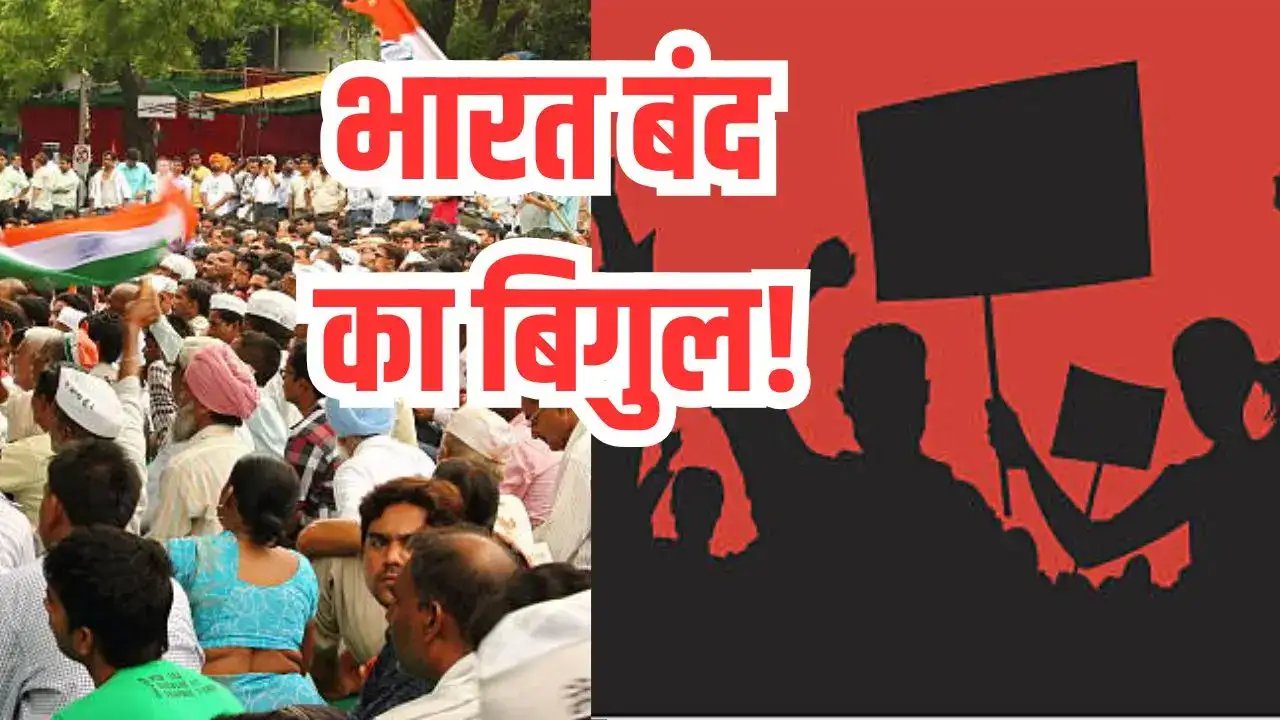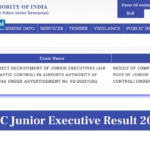On 9th July 2025, India will witness one of the most significant general strikes in recent history. A united front of workers, farmers, students, and public sector employees have announced a Bharat Bandh to protest against the central government’s policies, alleging they are anti-worker, anti-farmer, and pro-corporate. With an estimated 25 crore (250 million) people set to join the strike, the country could come to a virtual standstill.
But what exactly is this bandh about? Who is participating, what are their demands, and how will it impact your day-to-day life? Here’s a detailed look.
🔎 What Is Bharat Bandh?
“Bharat Bandh” literally translates to “India Shutdown.” It is a form of civil protest where major sections of society voluntarily suspend work to demand change. Historically, Bharat Bandhs have been called over labor laws, farm bills, inflation, fuel prices, and more.
The 9th July 2025 Bharat Bandh has been announced by central trade unions, farmers’ organizations, and civil society groups in response to a long list of grievances. The strike is not politically motivated, leaders insist, but is focused on safeguarding the interests of workers, farmers, and common citizens.
📢 Who Is Calling the Bandh?
The bandh is being jointly organized by:
- 10 major trade unions, including INTUC, AITUC, CITU, HMS, and TUCC.
- Samyukt Kisan Morcha (SKM) – the coalition that led the historic 2020-21 farmers’ protest.
- All India Kisan Sabha, All India Agricultural Workers Union, and MNREGA workers’ unions.
- Public sector employees from banks, insurance, coal, power, steel, postal, railway, and transport sectors.
Even sections of students, teachers, healthcare workers, and retired employees’ associations are expected to participate.
📝 Why Is the Bandh Being Organized?
1. Labour Law Reforms
The central government has rolled out four new labour codes replacing 29 previous laws. Protesters argue that these codes dilute workers’ rights to unionize, strike, and negotiate. They also make it easier for employers to lay off employees and hire contract workers, reducing job security.
2. Privatization of PSUs
The disinvestment and privatization of public sector undertakings (PSUs) have angered workers across the country. Institutions like LIC, BPCL, and various banks have been targeted for privatization, raising fears of job losses and erosion of public wealth.
3. Inflation and Unemployment
Skyrocketing prices of fuel, food, and essentials have made life unaffordable for the poor and middle class. At the same time, unemployment among youth has reached alarming levels. The bandh seeks urgent action on job creation and inflation control.
4. Farmers’ Issues
Despite the withdrawal of the three controversial farm laws in 2021, farmers claim that their core demands remain unfulfilled:
- Legal guarantee of Minimum Support Price (MSP)
- Loan waivers
- Crop insurance reforms
- Irrigation support and subsidies
5. MNREGA Budget Cuts
Budget cuts to the Mahatma Gandhi National Rural Employment Guarantee Act (MGNREGA) have resulted in payment delays and unemployment in rural areas. Workers are demanding increased allocation and urban employment schemes.
🛑 What Will Be Affected?
The strike is expected to affect multiple sectors:
| Sector | Status on 9th July 2025 |
|---|---|
| Banks | Likely to remain shut in many areas |
| Transport | Public transport services may be disrupted |
| Railways | Possible delays, especially goods trains |
| Schools/Colleges | Many may remain closed or hold online classes |
| Shops/Markets | Mixed response; some will shut in solidarity |
| Government Offices | Attendance likely to be thin |
| Healthcare | Emergency services will run, but outpatient services may be hit |
Authorities have advised citizens to avoid unnecessary travel and complete essential tasks a day prior.
🚨 Government’s Response
As of now, the central government has not made any formal statement on the bandh. However, sources indicate that state governments have been directed to:
- Ensure law and order.
- Keep emergency and essential services running.
- Avoid excessive police crackdown to prevent escalation.
In states like West Bengal, Kerala, Tamil Nadu, and Punjab, where many unions are strong, large-scale participation is expected. In BJP-ruled states like Uttar Pradesh and Gujarat, tighter control is likely.
🗣️ Voices from the Ground
Trade Union Leaders Speak
“This is not just a strike, it’s a fight to save our rights, jobs, and the Constitution.”
– Tapan Sen, General Secretary, CITU
“Workers are not slaves. We demand dignity, fair wages, and an end to exploitation.”
– Amarjeet Kaur, AITUC Leader
Farmers’ Voice
“We were promised MSP and justice. That promise remains unfulfilled.”
– Darshan Pal, Samyukt Kisan Morcha
🧭 Public Opinion
Public sentiment remains mixed. Many citizens, especially in urban areas, are inconvenienced by strikes. However, a large section sympathizes with the cause, especially considering the rising cost of living and joblessness.
On social media, hashtags like #BharatBandh2025, #StandWithWorkers, and #MSPGuaranteeNow are already trending.
🕊️ Is a Solution Possible?
Unions have repeatedly said they are open to dialogue if the government is willing to engage meaningfully. However, no invitation for talks has been extended yet. Experts suggest that a parliamentary committee or national dialogue platform could help resolve such issues without repeated strikes.
Unless concrete steps are taken, more such bandhs could occur in the coming months, especially with state elections approaching in Maharashtra, Haryana, and Jharkhand.
🧾 Key Demands of Bharat Bandh 2025
- Repeal of the four new Labour Codes
- Restoration of the Old Pension Scheme (OPS)
- Immediate stop to PSU privatization
- Guaranteed MSP for crops
- Strengthening of MGNREGA with 200+ days of guaranteed work
- Universal Public Distribution System (PDS)
- Job creation and filling of government vacancies
- Withdraw GST on essential commodities
- Social security for unorganized workers
- Affordable healthcare and education
✍️ Final Thoughts
The Bharat Bandh of 9th July 2025 is not just a one-day shutdown. It is a collective cry for justice—a reflection of deep dissatisfaction among India’s working class and rural population. Whether the government chooses confrontation or conversation will decide not only the outcome of this protest but also the course of India’s democratic discourse in the months to come.
In a country as large and diverse as India, peaceful mass mobilizations like Bharat Bandh are not disturbances; they are the heartbeat of democracy.
What are your thoughts on Bharat Bandh 2025? Do you support the movement? Share your views in the comments below.










